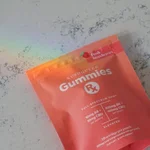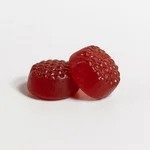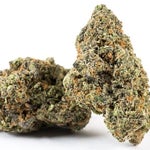Understanding Edibles
Cannabis is a plant that has been used for medicinal, spiritual, and recreational purposes for thousands of years. While smoking is still the most popular way of consuming weed, more and more people are turning to edibles as a healthier and more discreet alternative. Edibles are food products that have been infused with cannabis, usually in the form of THC or CBD oil.
Edibles come in many different forms, including gummies, chocolate bars, brownies, and even savory snacks. They can be purchased at dispensaries or made at home using cannabis-infused butter or oil. Edibles offer a unique experience because they produce a different type of high than smoking. The effects of edibles are usually more intense and last longer, making them a popular choice for those seeking a stronger and longer-lasting buzz.
How Do Edibles Work?
When you smoke weed, the THC and other cannabinoids are absorbed into your bloodstream through your lungs. This process is quick and produces almost immediate effects. Edibles, on the other hand, need to be digested before the THC can be absorbed into your bloodstream. This means that it can take anywhere from 30 minutes to 2 hours for the effects to kick in.
Once the THC is absorbed into your bloodstream, it travels to your brain, where it binds to cannabinoid receptors. THC is a psychoactive compound that produces a euphoric and relaxing effect. CBD, on the other hand, is non-psychoactive and produces a more calming and therapeutic effect.
The Science of Body Temperature
Before we can answer the question, “Do edibles make you warm?” we need to understand the science behind body temperature. Our bodies are designed to function at a specific internal temperature of around 98.6°F (37°C). Our body temperature can vary slightly throughout the day, but it is generally regulated by the hypothalamus, a small region of the brain that acts as a thermostat.
When our body temperature rises above its normal range, the hypothalamus triggers a response to cool the body down, such as sweating. When our body temperature drops below its normal range, the hypothalamus triggers a response to warm the body up, such as shivering.
The Effect of Edibles on Body Temperature
Now that we understand how body temperature works, let’s take a look at whether edibles make you warm. The short answer is that it depends on the individual and the dose of edibles consumed.
Many people report feeling warm or even hot after consuming edibles. This is likely due to the fact that THC can cause blood vessels to dilate, which can increase blood flow to the skin and create a sensation of warmth. However, this is not a universal experience, and some people may not notice any change in body temperature after consuming edibles.
It’s also worth noting that consuming too much THC can lead to a drop in body temperature, which can cause shivering and other symptoms of hypothermia. This is more likely to occur in people who consume large doses of edibles or who are new to cannabis and do not have a tolerance.
Tips for Consuming Edibles
If you are new to edibles, it’s important to start with a low dose and wait at least an hour before consuming more. Edibles can take a long time to kick in, and it’s easy to consume too much if you are not patient.
It’s also important to keep in mind that the effects of edibles can last for several hours, so it’s best to consume them when you have plenty of time and are in a comfortable and safe environment.
Finally, it’s critical to store edibles safely, especially if you have children or pets in the house. Edibles can be mistaken for regular food, so it’s important to keep them well out of reach and in child-proof containers.
Conclusion
Edibles can be a fun and enjoyable way to consume cannabis, but they are not without their risks. It’s important to understand how they work and to consume them responsibly. While it’s true that some people may feel warm after consuming edibles, this is not a universal experience, and it’s important to be aware of the potential risks associated with consuming too much THC. As with any drug, it’s critical to practice moderation and to stay safe.
References
- “The Health Effects of Cannabis and Cannabinoids: The Current State of Evidence and Recommendations for Research.” National Academies Press, 2017.
- “What You Should Know About Marijuana Edibles.” Harvard Health Publishing, 2017.
- “How Does Your Body Control Its Temperature?” National Institutes of Health, 2019.












